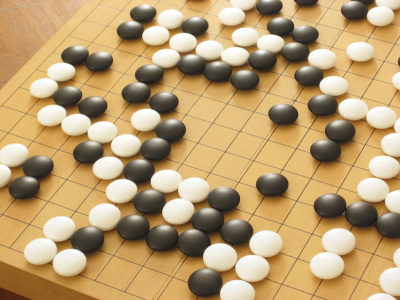
Oumuamua arrives in Hawaii
Last month, researchers in Hawaii unexpectedly spotted an asteroid unlike any other the world had ever seen. Shaped like a bulky pen, this asteroid is the first visitor from outside our solar system to land on Earth.
The asteroid was first seen on Oct. 19 from Hawaii’s Pan-STARRS1 telescope and was officially announced on Oct. 26 as “Oumuamua,” meaning “a messenger from afar arriving first,” in Hawaiian. Originally, researchers believed the object was a fast-moving comet, but after further observation, they realized it did not have all the necessary compositions, and was therefore an asteroid.
“While we’ve been able to study other stars to distant galaxies, this is the closest we’ve been able to study anything from another solar system,” Emmet Golden-Marx, a graduate student studying astronomy at Boston University, said.
At approximately a quarter of a mile long, this strange object is certainly interstellar. Along with observing its unique characteristics, researchers are interested in Oumuamua’s composition, which can tell a lot about where it came from and what exists there.
Golden-Marx said studying asteroids is important because “if a piece of an asteroid breaks of and becomes a meteor and lands on the earth… [we can] explore the composition of our solar system directly.”
Interstellar asteroids have most likely visited our solar system before, however, the Pan-STARRS1 telescope, located at the University of Hawaii, has only been around for a few years.
Kenneth Brecher, an emeritus professor of astronomy and physics at BU, predicts “an asteroid collision with the Earth… may have caused the extinction of the dinosaurs, mere mammals… will likely lead to the extinction of all life on the Earth around 2100 A.D.”
Asteroids are more than floating bits of rock broken off from more “important” celestial objects. They carry essential information for researchers and show that they are capable of traveling between solar systems.
“Man has only visited one other celestial body, the moon, and though we’ve sent probes to other planets, we haven’t been able to bring anything back from them … this is why we observe asteroids,” Golden-Marx said.
Artificial intelligence defeats ancient Chinese board game
Artificial intelligence has mastered the ancient and complex Chinese board game, Go — all in a matter of three days, without ever watching a human play.
AlphaGo, created by Deepmind, an artificial intelligence company based in London, and later acquired by Google, began as just another artificial intelligence machine, hoping to surpass human capabilities in terms of strategic thinking. After beating the 18-time world title winning Go champion, Lee Sedol, in March of 2016, AlphaGo proved its abilities to learn complex techniques in a very short time.
“AlphaGo doesn’t have human biases, so it can learn much quicker and without any help,” said Sebastian Jorna, a graduate student at Massachusetts Institute of Technology studying artificial intelligence.
Go, believed to have been invented over 3,000 years ago, requires two players, two colors of stones and a gridded board. The objective is to occupy the board with more stones than your opponent.
Last year, the 2015 version of AlphaGo beat Sedol 4-1. The newer version, AlphaGo Zero, recently beat 19-year-old Chinese champion Ke Jie, and defeated AlphaGo 100-0.
Though AlphaGo Zero and its predecessor AlphaGo are most well-known for their board game playing capabilities, Deepmind intends for it to “[create] algorithms that achieve superhuman performance in the most challenging domains with no human input,” according to Deepmind’s website.
While humans are limited by their own bias and their ability to make mistakes, Jorna said robots and machines can see an objective goal and quickly find a means of attaining it.
“This can be applied to all different kinds of fields, because where humans reach a dead end, the AI would forgo the biases and completely ignore how humans tackle these problems,” Jorna said.
Deepmind also hopes that AlphaGo will “be a multiplier for human ingenuity, helping us with our mission to solve some of the most important challenges humanity is facing.”



























































































































